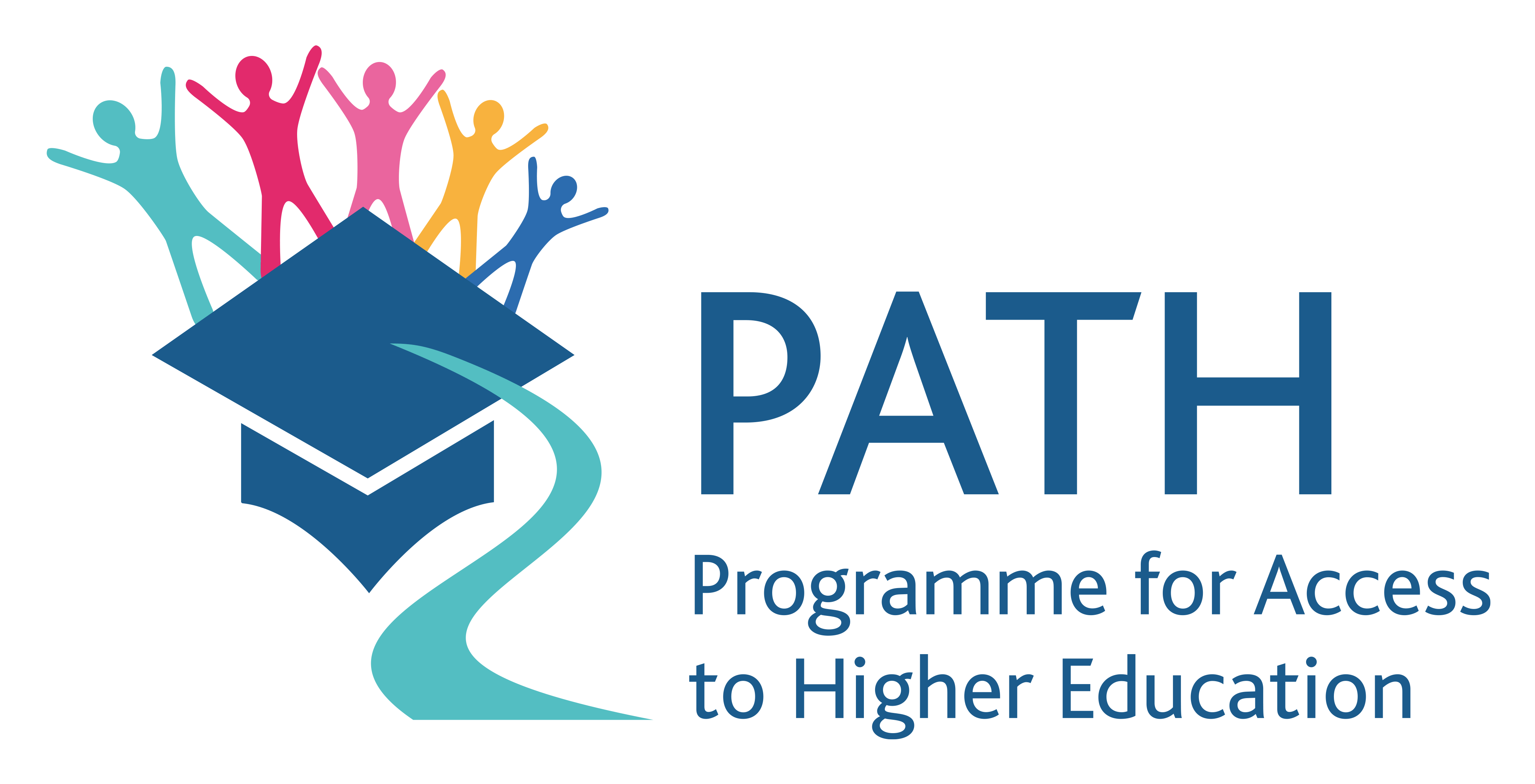PATH 4 Phase 2 – Course Provision for Students with Intellectual Disabilities

Background
PATH 4 is a key driver in delivering the following objectives, under the Inclusivity goal in the National Access Plan:
- To embed a whole-of-institution approach to student success and universal design
- To improve opportunities for students with intellectual disabilities to engage in higher education
PATH 4 is supported by funding of over €12m allocated on a phased basis as follows:
- Phase 1 – Universal Design Fund – Supporting inclusive universally designed higher education environments for all
- Phase 2 – Course provision for students with intellectual disabilities
Purpose of the Funding
PATH 4 Phase 2 will operate on a three-year pilot basis and is intended to:
- Enhance course provision for students with intellectual disabilities across HEIs currently participating in the PATH programme, including students with intellectual disabilities from disadvantaged socio-economic backgrounds and other National Access Plan priority groups.
- To support future evidence-informed policy considerations in respect of the successful participation of students with intellectual disabilities in higher education including:
- an understanding on how engagement in higher education can support real outcomes, including employment, for students with intellectual disabilities.
- establishing an evidence base for a full and holistic cost of provision for students with intellectual disabilities encompassing fees, cost of provision for institution, day-to-day expenses, transport, student supports, mental health, preparation for interviews, etc.
Phase 2 is also intended to contribute to the following:
- The implementation by HEIs of the Inclusivity goal, and its related objectives and actions, of the National Access Plan.
- To enable the creation of inclusive built and digital environments in higher education which can be accessed by all, and which supports increased engagement, progression, and success for all students, benefiting all priority groups in the National Access Plan, including students with intellectual disabilities.
- To develop the higher education sector’s capacity for inclusive teaching, learning and assessment to enable greater opportunities for participation in higher education by all students including students with intellectual disabilities.
Successful Proposals
Following a competitive Call for Proposals and a rigorous assessment process by an independent assessment panel of external experts, 10 proposals were recommended for funding.
On the 9 February 2024, Minister for Further and Higher Education, Research, Innovation and Science Simon Harris TD announced the successful programmes, which are due to commence in academic year 2024/2025.
Below is the list of higher education institutions who will receive funding under PATH 4 Phase 2:
Higher Education Institutions
- Atlantic Technological University (ATU)
- Dundalk Institute of Technology (DkIT)
- Institute of Art, Design & Technology Dún Laoghaire (IADT)
- Mary Immaculate College (MIC)
- Munster Technological University (MTU)
- South East Technological University (SETU)
- Technological University (TU) Dublin
- Trinity College Dublin (TCD)
- University College Cork (UCC)
- University of Galway
An indicative overview of the courses expected be offered in academic year 2024/25 and an easy read version can be found below. Information provided below may be subject to change.
PATH 4 Phase 2 Overview of Courses
PATH 4 Phase 2 Overview of Courses Easy Read Version
If you have any queries in relation to the PATH 4 Phase 2, please contact access@hea.ie.